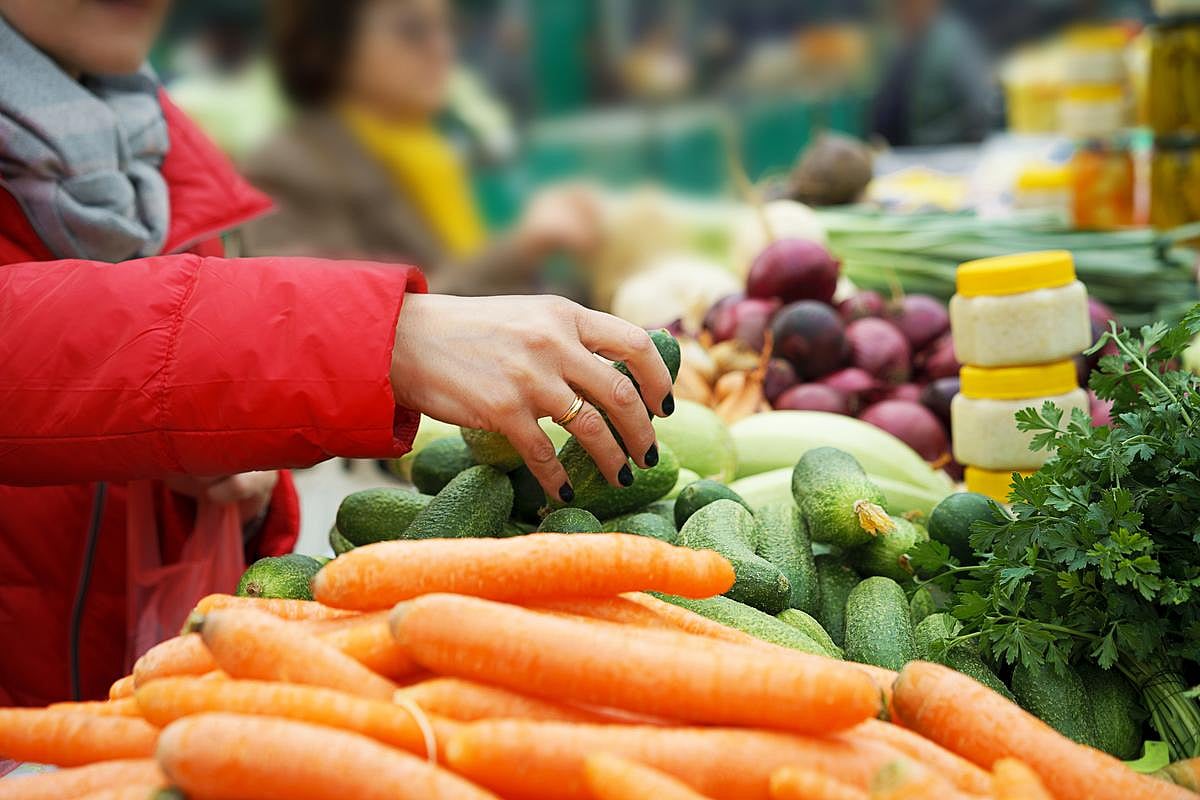Submit your contact info here or click the "Contact me about Sync" button below and we will reach out to you with more information.
Manténgase sano!

- Dennis Thompson
- Posted December 6, 2024
Fruits, Veggies Can Help You Avoid Colon Cancer
Colon cancer is increasing at an alarming rate among young adults, but a new study says better eating habits could turn that trend around.
About 20% of diagnosed colon cancers occur in people aged 54 and younger, nearly double the rate seen three decades ago, according to the American Cancer Society.
But people can reduce their risk if they increase their fiber intake and eat more healthy foods, a pair of new studies from Flinders University in the U.K. show.
“We’ve identified many direct links between poor diet choices and digestive cancers,” said senior researcher Yohannes Melaku, a nutritional epidemiologist with the Flinders Health and Medical Research Institute.
“Importantly, we found that a diet high in healthy fats and vegetables whilst limiting the consumption of sugars and alcohol could potentially reduce the risk of bowel and other cancers,” Melaku added in a Flinders news release.
People who ate the most fiber and unsaturated fatty acids had a 15% lower risk of colon cancer, according to results published recently in the European Journal of Nutrition.
“Notably, we found that high-fiber foods such as fruits and vegetables promote healthy gut bacteria that can reduce inflammation,” Melaku said. “The emphasis on fiber and healthy fats should be an integral part of everyone’s diet.”
An earlier evidence review found a 14% increased risk of colon cancer was associated with an unhealthy dietary pattern of more red and processed meat, alcohol, refined carbs and sugary drinks.
That same review found a 17% reduced risk of colon cancer associated with a higher intake of fruits, whole grains, legumes, vegetables, milk and other dairy products.
More clinical trials are needed to fully investigate the impact that diet can have on colon cancer, the researchers added.
“Whilst our results are promising, more work needs to be done with a greater focus on nutrition in clinical settings using nutritional biomarkers, to better understand the relationship between diet and GI [gastrointestinal] cancer,” said researcher Amy Reynolds, an associate professor and clinical epidemiologist at Flinders. “We need to understand how different dietary patterns may influence the risk of developing digestive cancers.”
GI cancers -- esophageal, stomach, pancreas, small bowel, colon, rectal and anal cancers -- are responsible for 1 in 4 cancer cases and 1 in 3 cancer deaths worldwide, researchers noted.
“As awareness around bowel cancer grows, our research serves as a timely reminder of the power of nutrition in disease prevention,” Melaku said. “By adhering to healthy eating practices, we can take proactive steps in safeguarding our long-term health.”
“With the growing number of digestive cancers, such as bowel cancer, being diagnosed worldwide, and increasingly in people under 50 years old, it’s time for action to protect people’s digestive health,” Melaku added.
More information
The American Cancer Society has more on colon cancer trends.
SOURCE: Flinders University, news release, Dec. 5, 2024







